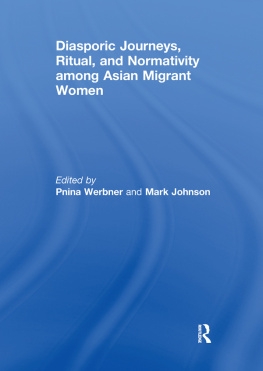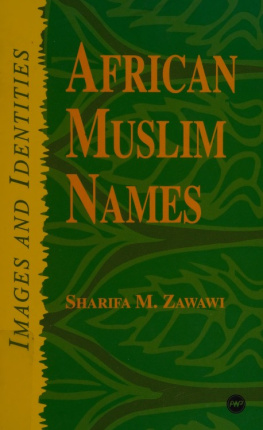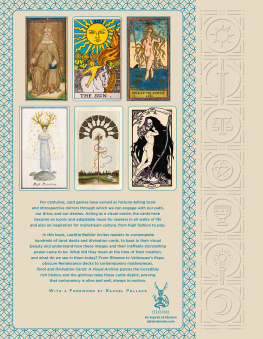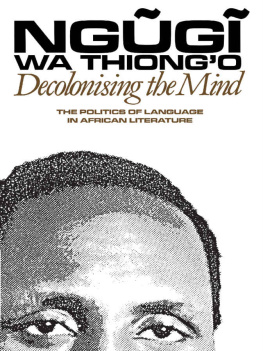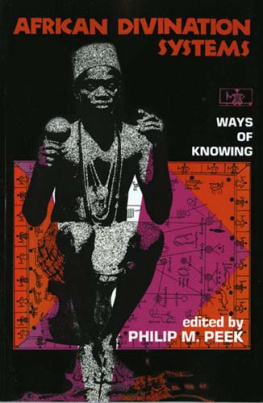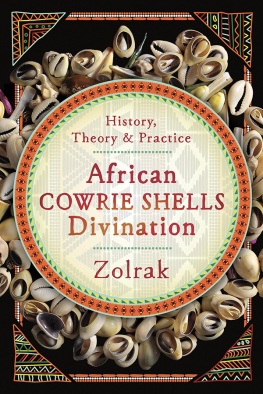DIVINATIONS GRASP
DIVINATIONS GRASP
African Encounters with the Almost Said
Richard Werbner
This book is a publication of
Indiana University Press
Office of Scholarly Publishing
Herman B Wells Library 350
1320 East 10th Street
Bloomington, Indiana 47405 USA
iupress.indiana.edu
2015 by Richard Werbner
All rights reserved
No part of this book may be reproduced or utilized in any form or by any means, electronic or mechanical, including photocopying and recording, or by any information storage and retrieval system, without permission in writing from the publisher. The Association of American University Presses Resolution on Permissions constitutes the only exception to this prohibition.
The paper used in this publication meets the minimum requirements of the American National Standard for Information SciencesPermanence of Paper for Printed Library Materials, ANSI Z39.48-1992.
Manufactured in the United States of America
Cataloging information is available from the Library of Congress
ISBN 978-0-253-01881-6 (cloth)
ISBN 978-0-253-01895-3 (paperback)
ISBN 978-0-253-01889-2 (ebook)
1 2 3 4 5 20 19 18 17 16 15
To Natalie
Yare, Ka Legwame la lethogotsweu.
Yare, Lethogotshweu ke dialana.
Yare, Moriri o mosweu.
Yare, Baswe basule baoduma
Yare, Sentshupe ka monwana,
Otsupile baswi maloba.
Yare, Ahudugile mantsi akoma,
Melete esetse oma-oma.
It says, Legwame of the white head.
It says, The white head has curling tangled apart.
It says, The white hair.
It says, The dead died roaring about it.
It says, Point not a finger at me.
You pointed at the dead, long ago.
Gone away are the buzzing flies of a secret.
The pits remain ever-so-still.
Contents
Acknowledgments
THE FIRST DEBT I want to acknowledge is in my thanks to the National Humanities Center, North Carolina, and its exemplary director, Geoffrey Harpham. Given the generous support of the Glaxo-Smith-Klein Senior Fellowship for 20112012, I was able to complete much of the first draft of this book at the center. Karen Carroll went over each version with a fine-tooth comb so reliably that I became spoiled for later revision away from her meticulous care and that of Lois Whittington, Joel Elliot, and the centers brilliantly magical librarians, Andriade Brook, Eliza Robertson, and Jean Houston. My debt is also great to a good number of the NHC fellows who found time to read and comment on my work in progress: Neil Bernstein, Matthew Cook, Jonathan Culler, Gaston Espinosa, Joshua Landy, Paul Losensky, John Monfasani, Morgan Pitelka, Jason Stevens, Ajantha Subramanian, and Dorothy Wong.
I want to thank, too, the other readers who responded to my chapters with many more helpful criticisms than I have managed to address fully: Richard Armstrong, Richard Fardon, Paul Stoller, Michael Lambek, Sonia Silva, Wendy James, Daniel Price, Guy Callan, Fred Klaits, James Peacock, Paul Berliner, Mattia Fumanti, Harri Englund, Joost Fontein, Rudi Colloredo-Mansfeld, Christopher Nelson, Charles Piot, Paul Henley, Ferdinand De Jong, Karin Barber, and Paul Silverstein.
I had the opportunity to get a wider audience for this work in progress when I presented a series of public lectures: A. L Epstein Memorial Lecture, Brighton 2005; Inaugural Lecture, African Studies Center, Michigan State University 2012; Glaxo- Smith-Kline Senior Fellow Lecture, National Humanities Center. 2012; Elliot P. Skinner, Lecture, Association for Africanist Anthropology, American Anthropological Association, 2012; and Royal African Society Lecture, University of St. Andrews, 2013.
In addition, I benefited from the seminar papers I read to the departments of anthropology at Reed College and the University of North Carolina, Chapel Hill; to the Center for African and African American Research, Duke University; to the Global South Group, Chapel Hill; to the Satterthwaite Colloquium on African Ritual and Religion; and to the Saturday Seminar, International Centre for Contemporary Cultural Research, University of Manchester.
To my research assistants, in turn, Ontlogetse Mafoko, Disikalala Sebata Gaseitsiwe, Gaseitsiwe Gaseitsiwe, and Njebe Molefhe Gabanakgosi, I owe a very great debt, and I wish to thank them for sustaining our research with their remarkable dedication, cultural insight, and tireless collaboration.
For decades, before he died in June 2003, Isaac Schapera welcomed me at the door of his apartment in Londons White House Hotel with a simple question, Where is the book? He meant this promised book, for which he very generously gave me his field notes of texts from Kgatla diviners and healers in Mochudi, Botswana. Long in gestation as this ethnography has been, I hope it fulfils my promise to him, and I want to express my very great thanks for the warm encouragement, ethnographic guidance, and practical help he gave me from the very start of my research in southern Africa. The fact is, however, that I myself found the creative richness of the diviners so daunting that for many years I was not the one who believed faithfully that I had to and could write this book. That faithful, insistent person had herself slaved away during our fieldwork, holding the microphone for recording sances, keeping a sharp eyelike a fast cardplayeron the falls of the lots, and typing up transcripts. For all this, and much criticism of the whole manuscript, I thank my wife, Pnina.
Finally, I gratefully acknowledge the financial support for my fieldwork that was given by the Economic and Social Research Council, the Nuffield Foundation, and the International Centre for Contemporary Cultural Research of the University of Manchester.
DIVINATIONS GRASP
Introduction: Light and Dark, Small and Big, the Archons Wisdom and Reflected Dignity
THE RHINO IS standing in the sun, runs the praise poetry in Botswana for the Tswapong divinatory tablets. His shade is his ears. He flaps over those dwelling beneath. As with that powerful being the rhino, so too with the ancestors, who provide the canopy. If you dwell in their shade, you are blessed and protected; your shadowiness is actually cast by them for you. Abandoning them leaves one bereft of powerful dignity, shunned by the dead and so shunned by the living, diviners argue.
In agreement with that, Tswapong insist that shadowiness or shade is innate. It is a mysterious gift of creation at birth; indeed, it is a blessing from ones parents. What the persons creators give, they can, as spirits or divinities of the dead, take away, so that the person is left in sefifi, occult darkness, without shadowiness cast upon him.
The area of disagreement among Tswapong lies in their views of how far, if at all, shadowiness can be deliberately remade to measure. They disagree about how, if at all, it can be generated or regenerated by the subject himself or others using magic or some powerful means of his choice. Doubt and skepticism are rife when it comes to a magical claim that anyone can not only tell but also provide the needed means for shadowiness, such as through the use of a diviners lamp or powerful herbs.
Nevertheless, in a great deal of ritual, including Christian services with candles, Tswapong seek to deal with the play of light and dark in their lives. This is the main reason diviners give for divining in the early morning or very late afternoon but never at midday. In midday, only one tablet among the lots, known as the Senior Woman, speaks; being


